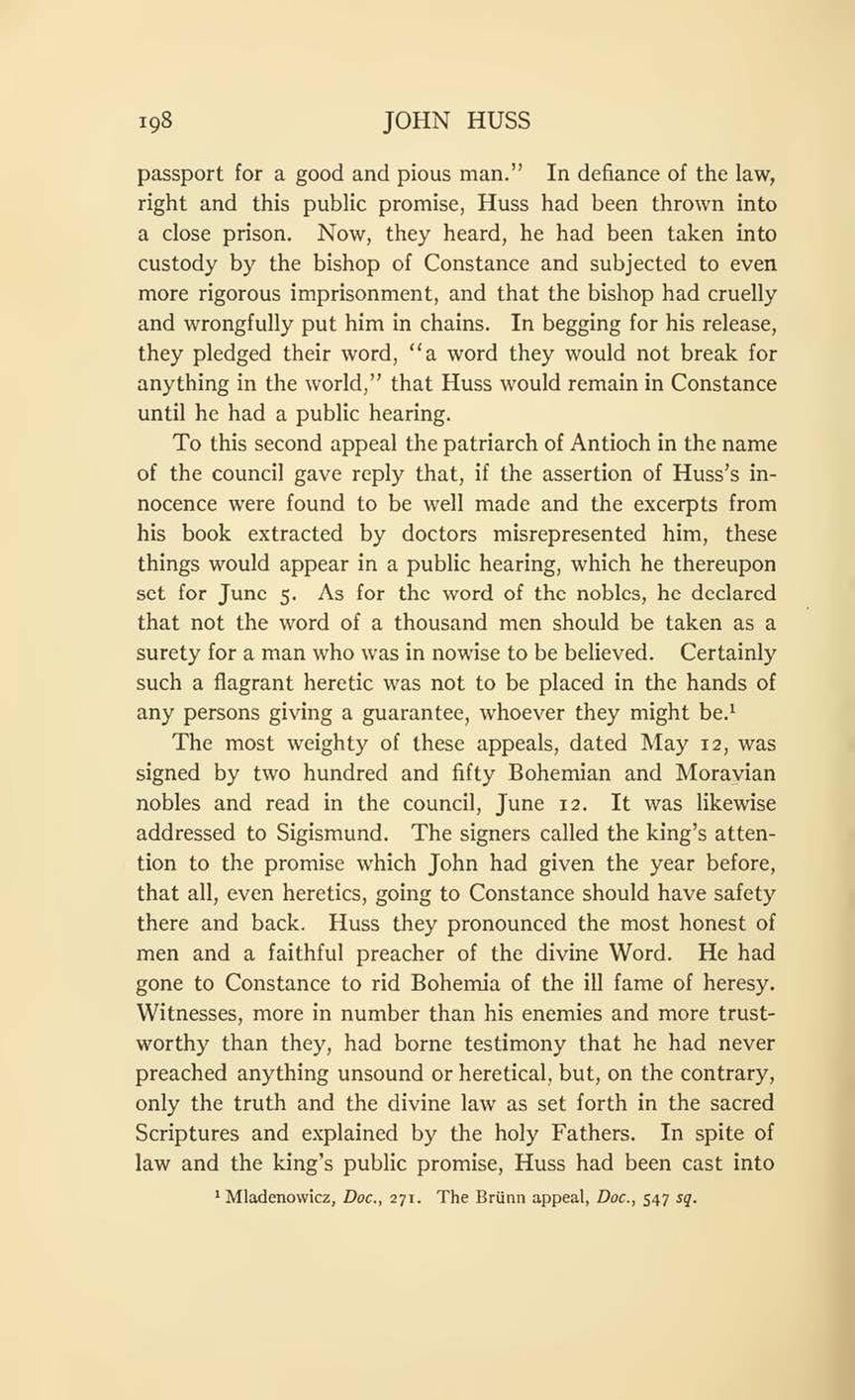passport for a good and pious man.” In defiance of the law, right and this public promise, Huss had been thrown into a close prison. Now, they heard, he had been taken into custody by the bishop of Constance and subjected to even more rigorous imprisonment, and that the bishop had cruelly and wrongfully put him in chains. In begging for his release, they pledged their word, “a word they would not break for anything in the world,” that Huss would remain in Constance until he had a public hearing.
To this second appeal the patriarch of Antioch in the name of the council gave reply that, if the assertion of Huss’s innocence were found to be well made and the excerpts from his book extracted by doctors misrepresented him, these things would appear in a public hearing, which he thereupon set for June 5. As for the word of the nobles, he declared that not the word of a thousand men should be taken as a surety for a man who was in nowise to be believed. Certainly such a flagrant heretic was not to be placed in the hands of any persons giving a guarantee, whoever they might be.[1]
The most weighty of these appeals, dated May 12, was signed by two hundred and fifty Bohemian and Moravian nobles and read in the council, June 12. It was likewise addressed to Sigismund. The signers called the king’s attention to the promise which John had given the year before, that all, even heretics, going to Constance should have safety there and back. Huss they pronounced the most honest of men and a faithful preacher of the divine Word. He had gone to Constance to rid Bohemia of the ill fame of heresy. Witnesses, more in number than his enemies and more trustworthy than they, had borne testimony that he had never preached anything unsound or heretical, but, on the contrary, only the truth and the divine law as set forth in the sacred Scriptures and explained by the holy Fathers. In spite of law and the king’s public promise, Huss had been cast into
- ↑ Mladenowicz, Doc., 271. The Brünn appeal. Doc., 547 sq.
